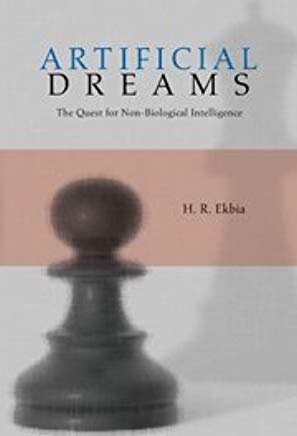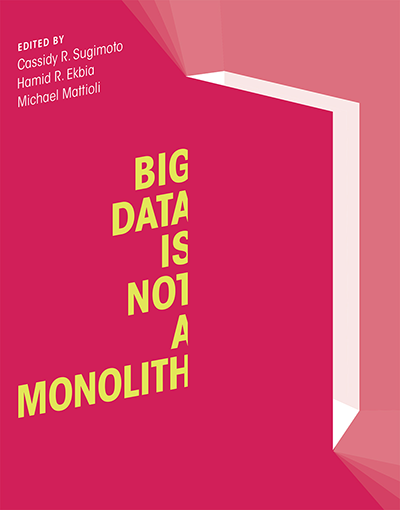You are my ball, and you are in the curved mallet of my decree;
Though I am making you run, I am still running in your track. — Rumi
I am a poet of technology, and in a number of ways.
First, I take technology seriously, in the same way that a poet takes the world seriously, cultivating a sensitivity to it as something that is independent of us. Technology is our creation, but it also has an independent reality, which we can fully appreciate if we cultivate a sensitivity toward it. Martin Heidegger famously said that, “the essence of technology is by no means technological.” For him, that essence is not poiesis (bringing forth) anymore, but “enframing” — that is, the tendency of technology to bring things into its fold, turning them into standing reserves. I agree with Heidegger on the first point — that the essence of technology is not technological — but not fully on the second one. Modern technologies such as computing are poietic; they bring things forth that did not exist before or that have been hidden from us. From this perspective, the essence of technology is mediation. Technology mediates our relationships with the world, giving us both new things and also the language to talk about them. It is an indispensable part of human life. That is why, unlike Heidegger, I am not nostalgic about a lost paradise that needs to be reclaimed by stopping technology.
Second, I aspire to unsettle the limits of technology in the same way that a poet pushes the boundaries of language to liberate it from the dictums of grammar and formalism. In so doing, the poet expands the horizon of language, enabling it to do things and to go to places that might be otherwise impossible. I would like, similarly, to release technology from the shackles of rationalist and formalist thinking, taking it to places that are not sanctioned by the dominant socio-economic systems, cultural frameworks, and political agendas.
The above should not be understood as blind subscription to the liberal idea of “progress,” not should it be taken as advocating “disruptive innovation,” formulated by economists such as Schumpeter. This takes us to two other senses of the poetics of technology.
The third sense, thus, is Po.E.T. as in the Political Economy of Technology. Modern technology and the capitalist economy have a dynamic and intertwined history. For many decades now, and with increasing intensity, for instance, computing and capitalism have been developing in a lockstep fashion in such a way that we cannot understand computing without paying attention to capitalism. The two systems feed off of each other on a global scale — each with its own set of structures, techniques, values, and practices, but in tight coupling with the other. The political economy of computing can help us understand this relationship, providing an account of technological change within the purview of historical developments, socioeconomic systems, legal and regulatory frameworks, governance structures, and social policies and agendas. The fact that modern technology has often not served this purpose is because it has been driven by the profit motif. But that is not inevitable. We can dismiss this basic fact at our own peril, but we can also acknowledge it, taking control of the development of technology and put it in the service of creating new possibilities for all of humanity. We can put things on the right track not by eliminating technology but by harnessing the profit motif.
Fourth and last, I am a Po.E.T. in the sense of taking an interest in the Policy and Ethics of Technology. I see these as closely intertwined, with ethics guiding our thinking about the potential harms and benefits of technology, and policy giving the thinking teeth and legs.
I am deeply committed to the above senses of the poetics of technology in a holistic way. As a human being, I see technology as an indispensable mediator of our social relations. As an intellectual, I aspire to push its boundaries beyond established frameworks. As an academic, I study and understand it from the perspective of political economy. And, lastly, in my role as a policy advisor, I seek to put it in the service of a peaceful, prosperous, and sustainable world — for a better future, in short!
Books
Heteromation, and other stories of computing and capitalism
This book, written with my good friend Bonnie Nardi, provides a revisionary history of computing from the perspective of the division of labor between humans and machines. We identify three main moments in this history: automation, augmentation, and heteromation, and call the last moment “heteromation” for two reasons: first, it is a labour relation that extracts value from uncompensated human labour for the benefit of others – typically, but not always, business corporations; second, it puts humans at the margins of the machine, so that they do what machines cannot do (or could only do with difficult, expensive software programming that would not be cost-effective). While in automation machines did what humans could not do with ease and efficiency, in heteromation the opposite is the case. Put differently, the human others are doing much of the work, while machines are given the credit.
Artificial Dreams: The Quest for Non-Biological Intelligence
This book is a socio-philosophical critique of AI, following Phil Agre’s method of technical-critical practice. Situating AI and computing within the intellectual and philosophical traditions of modernity — most notably, Western rationalist thought — the book studies the social, cultural, and institutional milieus of AI practices that embody and regenerate rationalist thinking. Through a detailed examination of various AI models and systems, it identifies a central tension between “scientific” and “engineering” practices in AI, each with its own distinct approaches, aspirations, and ethos. With this tension as its leitmotif, the book moves beyond the purely technical and the purely critical accounts of AI and computing, and provides a vivid image of AI as a “colorful fabric of interwoven cultural, institutional, and intellectual threads — an enterprise the goal and character of which is constantly contended, negotiated, and redefined.” A decade after its publication, with the resurgence of AI and with its character and boundaries being contested yet again, the book remains relevant.
This is an edited volume with contributions from prominent scholars in the areas of technology, law, media, and organizations. Through their various disciplinary and practical perspectives, the contributors provide a perspectival account of Big Data that is grounded in the views and practices of different communities: scientists, philosophers, policy makers, managers, etc.
The Moon, the Corps, and the War
I also dabble in non-academic writing. This is an excerpt published by the Los Angeles Review of Books from my forthcoming memoir Pebbles in the Stream. I call this a “hetero-biography” to highlight the extent to which our destinies are decided by others whose life trajectories are entangled with ours in big and small, visible and invisible, direct and indirect ways — hence, the “hetero.” The memoir is a meditation on the stories of many such others in my life.
Universal Access and Its Asymmetries
Universal access — the idea that certain technologies and services should be extended to all regardless of geography or ability to pay — evokes ideals of democracy and equality that must be reconciled with the realities on the ground. While the conventional approach to universal access looks primarily at the costs to the system and the benefits to individuals, our book provides a holistic perspective that also accounts for costs to individuals and benefits for systems. With a comparative approach across multiple cases, it explores the history, costs, and benefits of providing universal access to technologies and services, overturning common assumptions and offering a foundation for making decisions about how to extend service—and how to pay for it.
Selected Papers
Rana, S. and Ekbia, H. (2021). Crisis, Rupture, and Structural Change: Re-Imagining Global Learning and Engagement While Staying in Place During the Covid-19 Pandemic. FIU Law Review. Vol. 16: 133-157.
Ekbia, H. and B. Nardi. (2019). Keynes’ Grandchildren and Marx’s Gig Workers: Why Human Labor Still Matters. International Labor Review, 158 (4).
Ekbia, H. (2018). The Tyranny of the Alter-Sphere. Figurationen. No. 1/2018. pp. 71-88.
Ekbia, H. and Nardi, B. (2018). Automation and Algorithms: From Form to Content. Cultural Anthropology33(3): 360-367.
Nardi, B. and Ekbia, H. (2018). The Future of Human Labor: The Case of War and Manufacturing. SIGCAS: Computer and Society Newsletter. http://www.sigcas.org/newsletter/volume-47-issue-4/7.pdf
Ekbia, H. (2016). Digital Inclusion and Social Exclusion: The Political Economy of Value in a Networked World. The Information Society, 32 (2): 165-175.
Ekbia, H. & Nardi, B. (2015). The Political Economy of Computing: The Elephant in the HCI Room. Interactions, pp. 46-49, Nov.-Dec.
Ekbia, H., Matiolli, M., Kouper, I., Arave, G., Ghazinejad, A. Bowman, T., Suri, R., Tsou, A., Weingart, S., & Sugimoto, C. (2015). Big Data, Bigger Dilemmas: A Critical Review. Journal of American Society for Information Science and Technology, 66(8) 1523-1746.
Suri, V.R. & Ekbia, H. (2015). Spatial Mediations in Historical Understanding: GIS and the Evolving Epistemic Practices of History. Journal of American Society for Information Science and Technology. DOI: 10.1002/asi
Ekbia, H. & Nardi, B. (2014). Heteromation And Its (Dis)Contents: The Division of Labor Between Humans And Machines. First Monday: 19(6).
Ekbia, H. & Sawhney, H. (2014). Reason, Resistance, and Reversal: Metaphors Of Technology In Design and Law. Culture, Theory, and Critique, 56(2): 149-169.DOI: 10.1080/14735784.2014.904752
Jozkowski, K. and Ekbia, H. (2015). Campus Craft: A Game For Sexual Assault Prevention In Universities. Games for Health Journal, 4(2): 95-106.
Ekbia, H. & Suri, V.R. (2013). Of Dustbowl Ballads And Railroad Tables: Erudite Enactments In Historical Inquiry. Information & Culture. 48(2): 260-278.
Day, R. & Ekbia, H. (2010). Digital Experiences. In Kallinikos, J., Lanzara, G. F. and Nardi, B.(Ed.). The digital habitat — Rethinking experience and social practice. First Monday,Volume 15, Number 6 - 7.
Ekbia, H. (2010). Fifty Years Of Research In Artificial Intelligence. In: Cronin, B. (Ed.) Annual Review of Information Science and Technology, Volume 44. Medford, NJ: Information Today/American Society for Information Science and Technology, pp. 201-242.
Ekbia, H. (2009). Digital Artifacts As Quasi-Objects: Qualification, Mediation, And Materiality. Journal of American Society for Information Science and Technology, 60(12), 2554-2566.
Ekbia, H., & Evans, T. (2009). Regimes Of Information: Land Use, Management, And Policy. The Information Society, 25, 328-343.
Ekbia, H., & Hara, N. (2008). Quality Of Evidence In Knowledge Management Research: Scholarly And Practitioner Literature. Journal of Information Science, 34, 110-126.
Leuteritz, T., & Ekbia, H. (2008). Not All Roads Lead To Resilience: A Complex Systems Approach To The Study Of Three Habitats. Ecology and Society, 13(1), (1). [online] URL: http://www.ecologyandsociety.org/vol13/iss1/art1/
Ekbia, H., & Kling, R. (2005). Network Organizations: Voluntary Cooperation Or Multivalent Negotiation.The Information Society, 21(3), 155–168.
Ekbia, H. (2004). How IT Mediates Organizations: Enron And the California Energy Crisis. Journal of Digital Information,5(4). Available from:http://jodi.ecs.soton.ac.uk/Articles/v05/i04/Ekbia/





